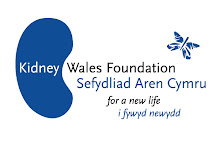Lifeline Wales: experience with a computerised kidney doner registry -- Salaman et al. 308 (6920): 30 -- BMJ click on original article in 1993
HISTORY OF SUCCESS IN WALES -LOOKING BACK - WALES WILL
CREATE THE FUTURE AGAIN-HOW THE COMPUTERISED DONORS WERE CREATED IN THE WORLD? HOW KIDNEY WALES WAS AHEAD OF ITS TIME ON DONOR CARDS.
HISTORY OF SUCCESS IN WALES -LOOKING BACK - WALES WILL
CREATE THE FUTURE AGAIN-HOW THE COMPUTERISED DONORS WERE CREATED IN THE WORLD? HOW KIDNEY WALES WAS AHEAD OF ITS TIME ON DONOR CARDS.
Wales as ever was too modest when it looked at the Organ Donor Registry .We claim Wales was pioneering in the 1980's. The World will recognise the contribution as KW is now 40 years old.
"In 1983 a computerised organ donor registry was set up at Manchester University.Local intensive care units checked the database using personal computers and modems whenever they had in their care a potential organ donor whose wishes were not known. In 1986 the scheme was extended to Wales with funding from the Welsh Office and the Kidney Research Unit for Wales Foundation. Special bilingual donor cards were sent to 1.2 million Welsh homes in 1986, with regular distributions since. The card had a small tear off portion identical with the standard donor card, and this was retained by the person. The other part was returned to the registry office of Lifeline Wales, where personal details were transferred to magnetic tape and sent to Manchester for entry into the computer.
In 1990 the Manchester computer ceased operating and the Lifeline Wales database was transferred to Cardiff. Because the computer terminals in the 15 intensive care units in Wales were seldom used they were withdrawn from service in 1990. Staff now check the database by consulting the scheme's transplant coordinators , who have their own terminal. The donor card was also modified to include a question on blood donation.
One year after launching Lifeline Wales 100 000 potential donors had been registered. The accrual of names has been more gradual since then, reaching 290 640 by January 1993 . About 17 000 new names continue to be added annually. Before 1986 there were about 35 donors each year. Two years after the launch this had increased to 44 donors (representing 20 donors per million of the population), which was the highest regional procurement rate in the United Kingdom. However, only 38 donors were found during 1991 and also 1992. Fourteen people who had registered with Lifeline Wales subsequently died and became organ donors. In none of these cases was the registry consulted because the person who died had been carrying a donor card and his or her views were already known."
"In 1983 a computerised organ donor registry was set up at Manchester University.Local intensive care units checked the database using personal computers and modems whenever they had in their care a potential organ donor whose wishes were not known. In 1986 the scheme was extended to Wales with funding from the Welsh Office and the Kidney Research Unit for Wales Foundation. Special bilingual donor cards were sent to 1.2 million Welsh homes in 1986, with regular distributions since. The card had a small tear off portion identical with the standard donor card, and this was retained by the person. The other part was returned to the registry office of Lifeline Wales, where personal details were transferred to magnetic tape and sent to Manchester for entry into the computer.
In 1990 the Manchester computer ceased operating and the Lifeline Wales database was transferred to Cardiff. Because the computer terminals in the 15 intensive care units in Wales were seldom used they were withdrawn from service in 1990. Staff now check the database by consulting the scheme's transplant coordinators , who have their own terminal. The donor card was also modified to include a question on blood donation.
One year after launching Lifeline Wales 100 000 potential donors had been registered. The accrual of names has been more gradual since then, reaching 290 640 by January 1993 . About 17 000 new names continue to be added annually. Before 1986 there were about 35 donors each year. Two years after the launch this had increased to 44 donors (representing 20 donors per million of the population), which was the highest regional procurement rate in the United Kingdom. However, only 38 donors were found during 1991 and also 1992. Fourteen people who had registered with Lifeline Wales subsequently died and became organ donors. In none of these cases was the registry consulted because the person who died had been carrying a donor card and his or her views were already known."
The start of presumed consent and the understanding of the gift of life.









No comments:
Post a Comment